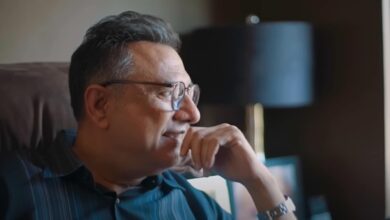What happens when you remember each day of your life in vivid detail?

Most people struggle to remember what they had for lunch a week ago, but for a small group of individuals, forgetting is nearly impossible. A writer with an extraordinary memory recently shared that she can recall every detail of her life from a specific day onward. The woman, who appeared on 60 minutes Australia was asked when she realised that she had this rare ability, to which she replied, “After I turned 14 and I don’t really know why on this day exactly February 5th, 1980… but from that day until now, it’s everyday.”
Reflecting on the woman’s experience, content creator Dr Sermed Mezher, explained, “How would you feel if you couldn’t forget memories even if you tried? Well that’s the reality of Jill Price. She’s an American writer who around the time of her 14th birthday had a switch flip inside her brain which caused her to remember every single day in detail.”
Story continues below this ad
This rare ability, known as Hyperthymesia or Highly Superior Autobiographical Memory (HSAM), allows individuals to remember personal experiences with incredible accuracy, often down to the most minor details. “Less than a 100 cases have ever been described,” noted Dr Mezher in the video.
While having a flawless memory might seem like a superpower, it comes with its own set of challenges. So, what exactly happens in the brain of someone with Hyperthymesia, and how does it differ from a typical memory?
Dr Kadam Nagpal, head, neuroimmunology and senior neurolog Salubritas Medcentre, tells , “In individuals with hyperthymesia, certain brain parts, particularly the amygdala and the hippocampus, are more active and larger than normal. The amygdala is responsible for processing emotions, while the hippocampus plays a major role in storing and retrieving memories. Because of these differences, people with hyperthymesia can recall even small details from years ago, such as what they wore or ate on a specific date. Their memories are clearer and more emotional, making them feel as if they are reliving past events.”
Downsides to remembering every detail of one’s life
At first, hyperthymesia may seem like an amazing gift, but it also has challenges. “Unlike normal memory, which allows people to forget painful experiences over time, individuals with hyperthymesia remember everything vividly. This means that traumatic or sad memories remain fresh, making it difficult for them to move on from past events,” states Dr Nagpal.
He adds that recalling so much information all the time can be overwhelming. Many people with hyperthymesia experience mental exhaustion because their brains are constantly retrieving memories, even when they do not want to. This can also lead to difficulty focusing on the present, as their minds often drift into past events. Some individuals even report sleep problems and anxiety due to their highly active memory. Story continues below this ad
“Even patients with Hyperthymesia have symptoms that resemble Obsessive Compulsive Disorder, and such symptoms because focusing too much on memories, especially the unpleasant ones, can adversely affect sleep and increase the risk of anxiety and depression,” notes Dr Nagpal.
Can individuals with HSAM train their memory to work selectively, or is their recall completely involuntary?
Dr Nagpal informs, “Unfortunately, people with hyperthymesia cannot train their memory to work selectively. Their recall is involuntary, meaning they do not choose what to remember or when. Memories return automatically when they hear a date, see a familiar object, or experience a certain smell. This differs from normal memory, where people usually need to focus and recall information intentionally.”
While some individuals may learn relaxation techniques or mental exercises to reduce stress caused their memory, they cannot turn it off or filter out unnecessary details. “Researchers are still studying hyperthymesia to understand if memory control techniques could help these individuals manage their unique abilities,” the expert concludes.
DISCLAIMER: This article is based on information from the public domain and/or the experts we spoke to. Always consult your health practitioner before starting any routine.







